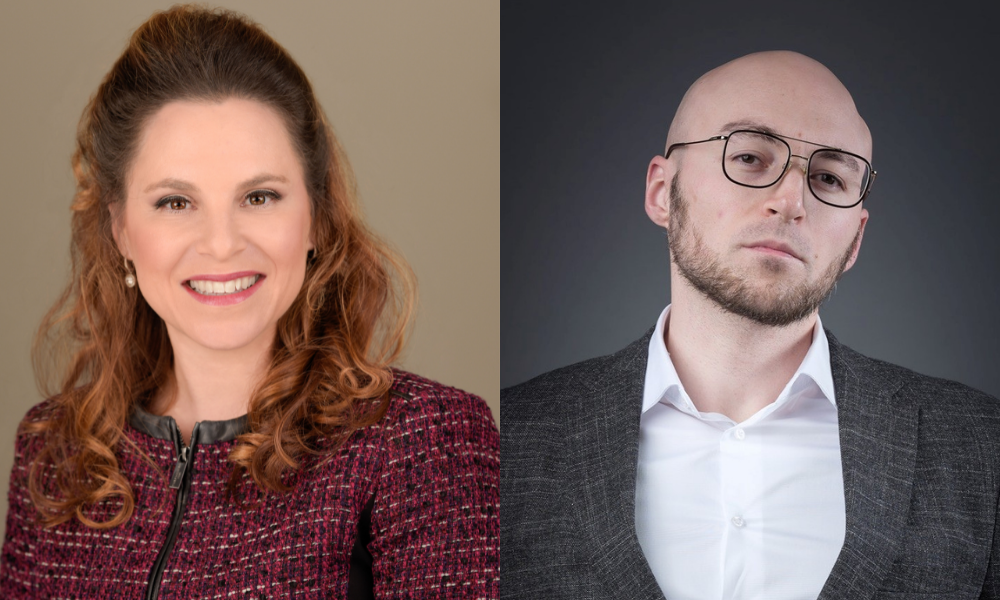
Advertising stigma comes from the fact that lawyers are not big on change

As more lawyers start new firms or become sole practitioners, legal advertising is increasingly becoming a pathway to compete with already established law firms. However, the challenge remains to ensure digital or social media marketing is done appropriately and follows the Law Society of Ontario rules of professional conduct, says Leanne Goldstein, a lawyer at MK Disability Lawyers.
The rules of professional conduct govern lawyers, and Goldstein says there are guiding principles when considering marketing services, mainly that lawyers must ensure that they are demonstrably true, accurate, and verifiable.
“They can’t be misleading, confusing, or deceptive and have to be in the best interest of the public and consistent with a high standard of professionalism.”
Goldstein says that lawyers must follow the rules created to protect the profession’s integrity and the public.
“The most important thing is protecting the public to ensure that they’re not being deceived and misled and have accurate information because, in the digital world, it’s become so much more confusing for individuals to discern what is a legitimate scenario and what isn’t.”
When lawyers engage in digital marketing, they are most likely hiring a firm to assist them because few lawyers are well versed in digital marketing, Goldstein says. However, a significant pitfall is that many lawyers do not do enough research to determine if a marketing company understands the professional conduct requirements.
“Lawyers intending to hire an outside marketing company to assist them must ensure that the marketing company is familiar with the legal realm and the rules that apply, or if they’re not, educate them on what the regulations and requirements are because unless they either engage in the area frequently, work for other lawyers, they will not necessarily know what is permissible.”
Goldstein says the stigma around advertising stems from the fact that lawyers were not permitted to advertise until the early 80s and got clients through a referral service. She says referral services have benefitted older and well-established law firms but do not help newly established firms.
“More lawyers and firms are moving into smaller practices from big law. So, although some of them may have some referral systems in place, they cannot compete in the same way with those established pre-existing law firms. So, it becomes more of an issue for the smaller firm or sole practitioners looking to find a way to differentiate themselves from other people.”
When considering advertising, Goldstein says viewing the rules of professional conduct is imperative because it contains commentary, which helps explain some of the allowed or prohibited scenarios.
“There are also proceedings through the law society that gives a few samples of scenarios where people may have complied with or not complied with the requirements for marketing and advertising,” Goldstein says.
She says communicating with lawyers in a similar position or engaging in successful and compliant advertising to figure out pitfalls in the process, their recommendations, and what to avoid is crucial.
“Ultimately, it all comes down to ensuring that what you’re doing is not contravening. You can’t just start the process without any research.”
Goldstein says advertising is also beneficial for individuals and lawyers trying to reach marginalized or racialized communities and cannot do it with a big budget but want to find ways to relate to communities.
“They have to develop unique ways to differentiate themselves and let people know who they are, and they can’t do that through only a referral.”
She says the stigma surrounding advertising also comes from the fact that lawyers are generally not big on change. “It took lawyers a while to embrace technology, so advertising marketing is a new world for lawyers.”
Shamil Shamilov, founder of legal marketing company dNovo Group says legal advertising is often a grey zone for smaller law firms because of the several advertising rules spearheaded by prominent law firms who approach business differently.
Bay Street law firms often pass judgment against advertising because they are easily referred, while smaller law firms do not usually get much volume through referrals or work with major establishments like hospitals to receive an influx of cases, Shamilov says.
“There’s a couple of law firms in the city, that have people in the hospitals and they don’t do any advertising or very little of it. But they work with hospital staff and a lot of them have relationships,” he says. “It’s very easy to cast judgement when you get files spoon fed to you because you’ve been in these relationships for a long time.”
He says the struggle for less prominent law firms is elevated because they are at a disadvantage and need advertising to get clients. “They’re fighting for volume, when more established firms will donate a million dollars at the end of the year to a hospital and the doctors from that hospital and the lawyers would be acquainted.”